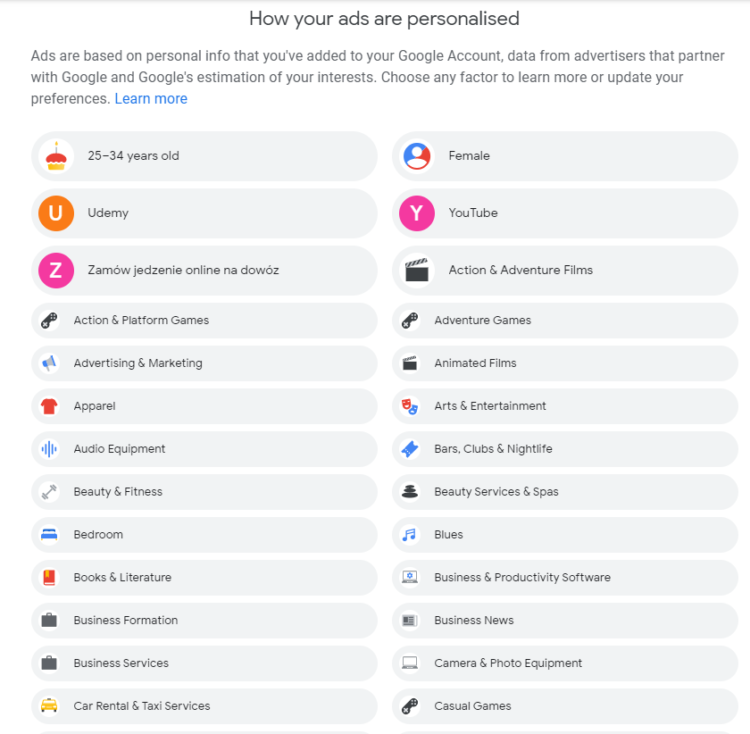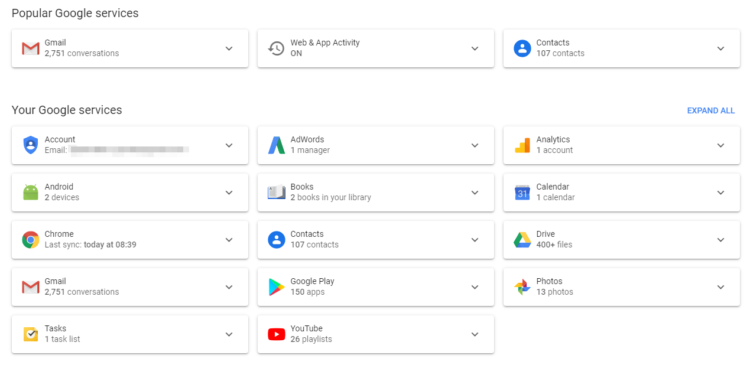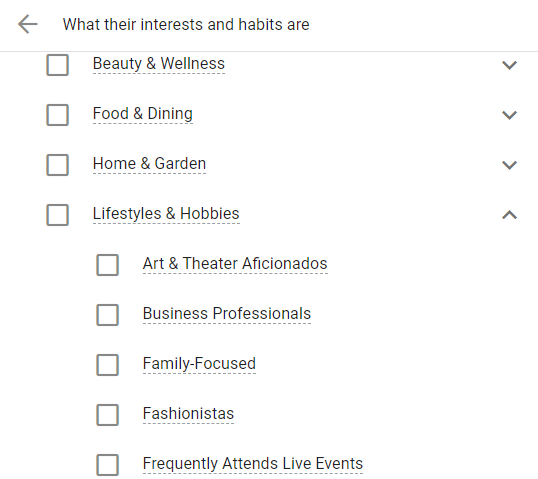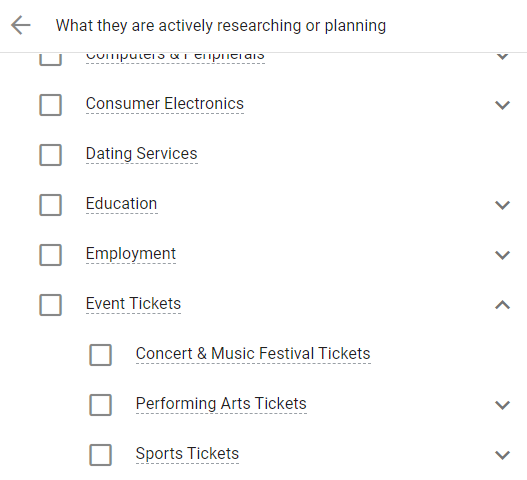Google Is Tracking You all the Time. Do You Know What It Knows About You?

Technology has been present in your everyday life for quite a long time. It provides you with entertainment and helps to organize the day or perform work duties. Unfortunately, still very few people realize that a lot of data left on the Internet isn’t anonymous. So, do you know what Google knows about you? Our today’s entry will surely answer all the questions that bother you.
Technology is omnipresent in the modern world and it seems that various electronic devices are all around us. You have a mobile phone in the pocket wherever you go, at work you sit in front of your computer and after coming back home you chill out watching the latest Netflix series on your TV or tablet.
You probably don’t hesitate before using applications that edit photos, help you keep a healthy lifestyle or organize a day. Social media enable you to communicate with friends or family. Instead of scanning encyclopedias, you prefer to enter a question into a search engine and social media accounts serve as your telephone directory.
It’s good because these solutions are simple, convenient and they enable us to organize our busy lifestyles. Thanks to technology, our general world or health knowledge is much more deeper than the one of previous generations. However, it’s also worth being aware of the personal data you’ve made public.
So, today we’re going to make an in-depth analysis of the subject. Make yourself comfortable and find out what Google knows about you and why it needs this data.
Table of contents:
- Information collected in the world of modern technology
- What does Google know about you?
- Why does Google collect information?
- Collected information vs. online marketing
Information collected in the world of modern technology
The devices you use know pretty many things about you – they recognize where you are, who you are with and what you do. How is it possible? You provide them with a great deal of information on a regular basis.
Your phone is a real source of information about you. It constantly updates your mobile network on your location, even when your GPS is turned off. It’s normal and allows you to receive calls. Additionally, if your GPS is turned on, the precision of determining your location is even bigger. The GPS is also used to help advertise nearby restaurants, services or shops and their current special offers. A simple shopping list that you make in an application may be indicative of your ethnicity, age, gender, habits, health or religion.
What’s more, nowadays the vast majority of smartphones is equipped with face and fingerprint recognition technology so these devices collect data on the user’s biometric system. This technology can be integrated with city cameras or Google glass to identify suspicious people in real time. This system is available and already used in Dubai.
The data stored on your computer reveals the books and articles you read, the music you listen to and the movies you watch in the evening. Social media platforms and all kinds of messengers provide information not only about who and how often you talk to but also about the subjects of your conversations. If you have a Google account, your search engine remembers everything you searched for from setting up the account.
Cookies on the Internet also collect a lot of information and it seems that not every Internet user actually understands how they work. Cookies are nothing more than a permanent identifier that assigns an individual number to each user. Initially, they were intended to collect information from only one site on which they were installed, but now they track your online activity at all times. Moreover, numerous companies create cookies therefore data can be collected by hundreds of cookies at the same time.
Google and Facebook are another great data collectors. A giant from Mountain View tracks your path to purchase when Google Analytics, a system for collecting data on website activity, is installed on the site. Some time ago, Google was taking advantage of Gmail to scan emails in search for suitable keywords. Then, the collected information was used in advertising campaigns. Now, the company has phased out this method of collecting information and focused on more effective solutions.
Furthermore, already in 2012 Google announced that all user information collected by its applications will be merged into one entity. Simultaneously, the search engine is still a key place for collecting personal data as it remembers all the search queries you’ve entered since creating the account.
On the other hand, Facebook collects information only from those profiles you’ve visited and liked. Based solely on this click, the algorithm can guess your race, personality, addictions, sexual orientation, political beliefs or relationship status.
What does Google know about you?
Do you use Google search engine and your Google account? Let’s see what the giant from Mountain View knows about you.
Google knows who you are. It collects information about your browser language or IP address and thanks to that it can also deduce your gender. If you use voice dialing and Google Assistant, you also provide the company with voice recordings. Your Gmail account contains information such as your name or phone number.
Google uses machine learning systems, which can be found in your Google Account settings, to predict your interests, gender and age.
Thanks to the analyzed data, Google is able to draw quite accurate conclusions. Although not all of the hints and suggestions are always on point, most of them will definitely correspond to your interests and tastes.
In your settings you can also come across a list of all contacts you have made available to the company.
Algorithms also know which browser, Google’s apps or devices (you can see them here) you use and which websites you browse. On your account you can find a list of applications that can access it.
Today, we use the Internet to shop, search for perfect holiday destinations or book tickets. This data is systematically saved in the activity section of the account that has been linked above.
If you want to have a look at your YouTube data, click here to access elements such as your search history, the videos you’ve seen or the comments you’ve written.
If you used the search engine, Google Maps or Google Assistant while making bookings, go to your account to find information about them. And when it comes to Google Maps, if you carry your mobile device with you, you’ll probably be able to check your recent locations. Google will provide you with an overview of all the places, towns and addresses you have visited, as well as their visualisations on the map.
You can find the history of clicked ads and ordered products in the purchase section. This information is collected from your browser, Google Maps and Google Assistant, as we’ve mentioned above.
Apart from that, you’re responsible for making a lot of data public – your meetings and visits are probably stored in Google Calendar, your voice is used to manage Google Assistant and the photos uploaded to the application inform about your location, company and time of activity.
Why does Google collect information?
You may start wondering why Google collects such detailed information. Well, the answer is simple, although it can seem pretty futuristic:
The information collected by Google enables it to develop and improve the machine learning system which gathers data about users and on its basis creates various behavior patterns.
So for example, in the screenshot presenting the interests section above you can see that Google assumed that I have a Bachelor’s degree because my interests and searches are similar to those who declare having completed this level of education. On the other hand, if I like one of Bob Ross’ videos on YouTube (a famous painter), then the system will automatically recommend me videos on related topics such as painting, art or drawing.
Machine learning is widely used for speech recognition (including voice messages), for displaying the most accurate search results and recommendations or for creating intelligent campaigns and setting bids in Google Ads.
Collected information vs. online marketing
Data collected by Google is used mainly in advertising campaigns. With the help of Google Ads, every agency and business involved in advertising services and products has the possibility to accurately direct its campaigns to the right recipients. All of these thanks to the gathered information.
Each campaign created by Delante can be addressed to a specific age group, gender or even to people with a specific household income (it applies to given countries). It’s also possible to specify who you want your target audience to be, what interests and habits should they have, what things they’re looking for on the market, what they intend to do and how they came across your company’s website. Let’s discuss this issue in more detail.
If you want to determine who your recipients should be, you’ve numerous possibilities at your disposal. You decide whether you want them to be parents and if so, how old the children should be. Or maybe you prefer to direct your offer to singles, people in a relationship or marriage? You can also address your offer to students, high school graduates, bachelors, masters and doctors. Moreover, it’s also possible to select tenants or flat and house owners as your target group.
The recipient’s interests section is an interesting part of campaign management. There are many possibilities and each option is divided into subcategories and smaller sections.
This way, you can reach shopping aficionados and choose whether you aim at luxury shopping lovers, shopaholics or bargain hunters. You can direct your campaign to cooking enthusiasts, regular customers of cafes or restaurants and junk food lovers. You can go for fans of comics, various genres of movies, games, music or books. It’s also possible to determine elements such as finances, transport, vehicles, sports, technology, beauty, news and hobbies. Now, it shouldn’t be surprising that you can target advertising to businessmen, amateur photographers, fashion, theatre or even animals lovers.
The possibilities are endless and their proper analysis enables to narrow down the number of recipients to a very small group of people you’re interested in.
However, that’s not the end. In a different section you can indicate what your target group is searching for. And if users are looking for something, it’s likely that they’re also planning to get that thing. If you’ve a precisely defined profile of your target recipients, then you can decide to reach people looking for tickets, animals or home articles, decorations, kitchen utensils, DIY accessories or interior designs. You can target campaigns either to those searching for jobs, courses, internships, schools or those who prefer clothing, travel, vehicles and all kinds of services.
Still not impressed? Well, you can also create your own lists of people searching for specific phrases, band and brand names, browse particular websites or show characteristic user behavior on your site – they visited it at a certain time, performed specific actions such as adding a product to a shopping cart, spent a given amount of time on your site or placed an order.
What’s more, Google Ads now enables creating smart campaigns and setting smart bids.
This means that the system uses machine learning to automatically optimize the bids in order to achieve the best results corresponding to the set goals.
Your goals can focus on increasing traffic to the site, improving the visibility in the search results or your conversion rate, achieving the target return on advertising expenditure or maximizing the value and number of conversions. This in turn, facilitates the process of manual setting of bids and their monitoring.
Smart campaigns in the advertising network optimize the targeting of advertisements so that they are displayed in the places where they achieve the best results and at the same time to those people who are the most likely to convert. These campaigns also optimize the bids so as to take part in auctions with the highest probability of conversion and they also automatically create advertisements. You upload your graphics to the system, create headings and content of the advertisement, however, it’s Google that decides about a display configuration and tailors everything to the advertising space.
On the other hand, smart product campaigns combine files containing data of products on the store’s offer with the provided resources. Then, the system chooses the most suitable combination of elements in order to display accurate ads. Additionally, in some countries it’s possible to benchmark advertisements with the use of a price comparison engine.
To sum up
As you can see, the list of methods of targeting ads on the Internet users is quite long and in the near future it’s bound to get even longer. For example, the implementation of Google Signals will mark the beginning of improving the information collection process. Try not to go to extremes and don’t be too afraid of surveillance. Take advantage of the possibilities and comfort offered by modern technology but at the same time keep in mind that you aren’t anonymous. We hope that our today’s entry put you in the picture.
Finally, we’d also like to mention that information collection isn’t a characteristic of the online world and it has been happening to mankind for a very long time. The issue is that nowadays it’s simply cheaper, faster and more efficient. After all, data collection influences not only the revenues of many companies but also the quality of life and convenience of mobile phone, tablet, computer and Internet users. This ensures that the ads and content displayed to us are more accurate and engaging.








